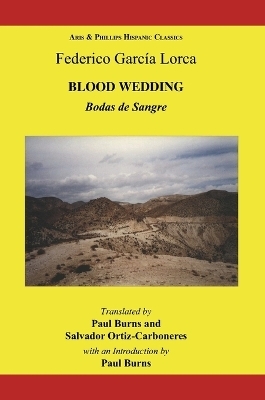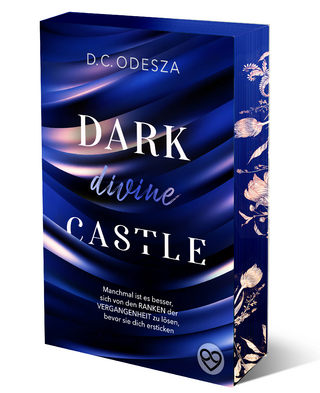
Lorca: Blood Wedding
Seiten
2009
Aris & Phillips Ltd (Verlag)
978-0-85668-786-0 (ISBN)
Aris & Phillips Ltd (Verlag)
978-0-85668-786-0 (ISBN)
- Lieferbar
- Versandkostenfrei
- Auch auf Rechnung
- Artikel merken
Federico García Lorca was born near Granada in 1898. Initially set on studying music in Paris, after his piano teacher died in 1916 he became involved in a literary and artistic group, including H G Wells and Rudyard Kipling. This move towards a more literary life eventually paid off.
Federico Garcia Lorca was born near Granada in 1898. Initially set on studying music in Paris, after his piano teacher died in 1916 he became involved in a literary and artistic group, including H G Wells and Rudyard Kipling. This move towards a more literary life eventually paid off. Blood Wedding (Bodas de Sangre) was written in 1932, and was first performed in Madrid in March 1933. It proved to be the popular and critical success he'd been waiting for. When the play was staged in Buenos Aires he even found himself confronted with the prospect of wealth - a prospect that soon became a reality. This prosperous, happy spell was short-lived though, as the political situation in Spain altered under Franco, putting an end to this time, and ultimately, his life. Lorca was executed on August 18th 1936. Blood Wedding is based around the story of a young woman who, unable to wed her lover is made to marry a more suitable man. On the day of her wedding, however, La Novia (The Bride) runs away with her lover (Leonardo), who is married with children. A series of events ensues... Leonardo is the only character in the play to have a name, the others all being identified by their role: El Novio (The Groom), La Suegra (The Mother-in-Law). As with many of Lorca's plays, symbolism is key, with the moon and death personified. This is the first play in Lorca's trilogy of rural tragedies, with Yerma and The House of Bernarda Alba
Federico Garcia Lorca was born near Granada in 1898. Initially set on studying music in Paris, after his piano teacher died in 1916 he became involved in a literary and artistic group, including H G Wells and Rudyard Kipling. This move towards a more literary life eventually paid off. Blood Wedding (Bodas de Sangre) was written in 1932, and was first performed in Madrid in March 1933. It proved to be the popular and critical success he'd been waiting for. When the play was staged in Buenos Aires he even found himself confronted with the prospect of wealth - a prospect that soon became a reality. This prosperous, happy spell was short-lived though, as the political situation in Spain altered under Franco, putting an end to this time, and ultimately, his life. Lorca was executed on August 18th 1936. Blood Wedding is based around the story of a young woman who, unable to wed her lover is made to marry a more suitable man. On the day of her wedding, however, La Novia (The Bride) runs away with her lover (Leonardo), who is married with children. A series of events ensues... Leonardo is the only character in the play to have a name, the others all being identified by their role: El Novio (The Groom), La Suegra (The Mother-in-Law). As with many of Lorca's plays, symbolism is key, with the moon and death personified. This is the first play in Lorca's trilogy of rural tragedies, with Yerma and The House of Bernarda Alba
edited and translated by Paul Burns and Salvador Ortiz-Carboneres
Introduction
Bodas de Sangre/Blood Wedding
Acto Primero/Act One
Acto Segundo/Act Two
Acto Tercero/Act Three
Bibliography
| Erscheint lt. Verlag | 30.4.2009 |
|---|---|
| Reihe/Serie | Aris & Phillips Hispanic Classics |
| Zusatzinfo | being second and third. Spanish text with facing-page translation. ^136p |
| Sprache | englisch |
| Maße | 149 x 210 mm |
| Themenwelt | Literatur ► Lyrik / Dramatik ► Dramatik / Theater |
| ISBN-10 | 0-85668-786-3 / 0856687863 |
| ISBN-13 | 978-0-85668-786-0 / 9780856687860 |
| Zustand | Neuware |
| Haben Sie eine Frage zum Produkt? |
Mehr entdecken
aus dem Bereich
aus dem Bereich
Der Tragödie erster und zweiter Teil. Urfaust
Buch | Hardcover (2021)
C.H.Beck (Verlag)
CHF 15,90


